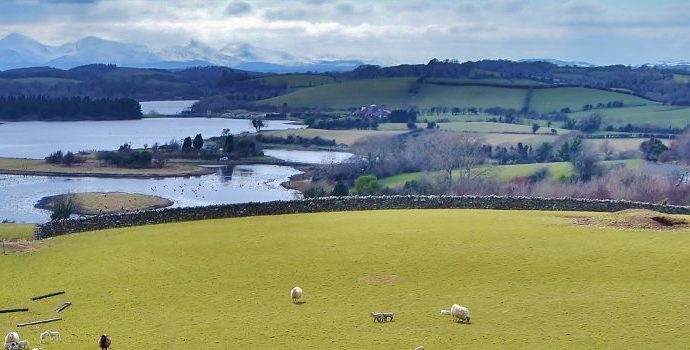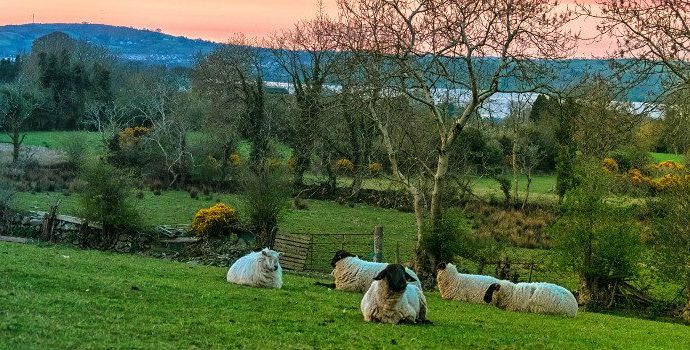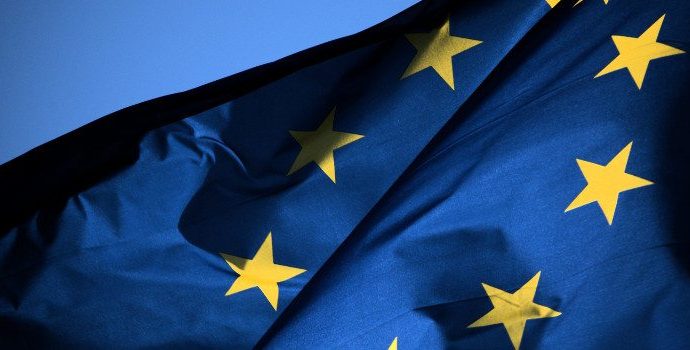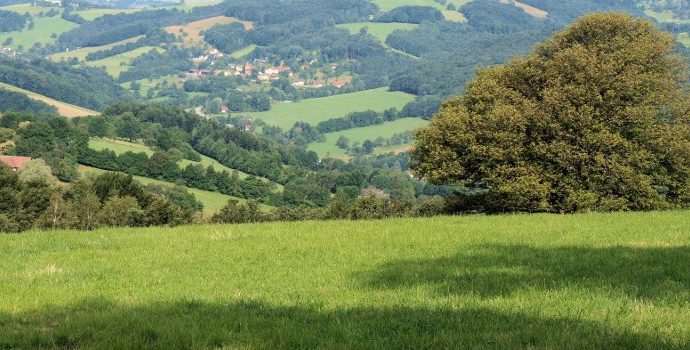CAP Council Report December 2020

MFF 2021 – 2027
- On July 22nd, the EU Council agreed a recovery package for Europe due to the Economic turmoil arising from the COVID-19 pandemic and a 7-year Multi Financial Framework (MFF). The total package is worth €1.8trillion.
- The Package includes a revised MFF for the next 7 years of €1,074bn (Constant Prices) or €1,210bn (Current Prices) and a Next Generation EU Recovery and Resilience Fund of €750bn.
- After a full week of votes in Brussels, MEPs adopted their position on the CAP reform on October 23rd. On the same week the European Council of Ministers from the EU27 Member States met in Luxemburg and reached their agreement on CAP. The three EU institutions, The Commission, the Parliament and the Council will negotiate a compromise between what each individually want. This process known as Trilogues will take many months and it is likely to be well into the Portuguese Presidency in 2021 before the final position is decided/agreed
- The new proposal involves a slight increase in CAP funding from the original Commission proposal but is still a decrease from the EU CAP Budget 2014-2020 at Constant 2018 prices of around 10%.
- Included in the CAP is €7.5bn from the Next Generation EU (NGEU) Recovery and Resilience Facility (RRF), the amount allocated to Ireland is €189.7m. This funding is added to Pillar 2 funding and must be committed by in 2021 and 2022 (30% in 2021 & 70% in 2022) and payments made by Dec 2025. It will be incorporated in Member States CAP Strategic Plans.
MFF / CAP Outcome
| Constant 2018 prices €bn | 2014-2020 MFF (EU27) | Agreed MFF &CAP2021- 2027 | % reduction at Constant prices | 2014-2020MFF(Ireland) | 2021-2027MFF(Ireland)Current Prices | %Change |
| MFF size, EUR billion | 1,082 | 1,074 | -0.7% | |||
| Agriculture | 382.8 | 343.94 | -10.1% | 10.68 | 10.73 | 0.5% |
| EAGF – Pillar 1 | 286.1 | 258.59 | -9.6% | 8.489 | 8.2575 | -2.7% |
| EAFRD- Pillar 2 inc €7.5bn from NGEU-RD) | 96.7 | 85.35 | -13.1% | 2.189 | 2.454 | 12.1% |
| CAP% Share of MFF | 35.3% | 32% |
Note: Budget figures are presented by the Council in Constant 2018 prices and in Current Prices. Constant prices account for inflation and allow for a direct comparison between the current CAP funding and the proposed CAP funding via the new MFF. The higher Current prices do not take account of inflation.
- Following the conclusion of the talks, the Taoiseach pointed out that there was an increase in the CAP Budget for Ireland from €10.68bn to €10.73bn, in current prices.
- Of the overall MFF EU 27 allocation of €258.9bn for Pillar 1, Direct Payments make up €239.9bn and market related measures are worth €18.678bn.
- The former Minister for Agriculture Darragh Calleary had indicated that the reduced budget would lead to a 3% reduction in BPS from 2021 onwards.
- On Pillar 2, which suffered a greater cut, the fact that national co- financing can increase means that overall funding for Rural Development plans can be greater provided the level of national co-financing is maximised.
- For pillar 2 co-financing the EU Council of ministers are proposing to set it up to a maximum of 57% national funding in some measures. The EU Parliament and the Commission are proposing slightly lower percentages. The final decision will be made at the Trilogues.
- When the maximum allowed rate of national co-funding allowed for Pillar 2 is set by the Trilogues it is then a national decision on the level of national funding allocated.
- IFA will be seeking a maximum allowed national co-funding rate to be provided in Ireland(insert)
- The breakdown of proposed CAP at current prices for Ireland for the next 7 years would be €8.2575bn for Pillar 1 and €2.439bn for Pillar 2.
- On an annualised basis this would lead to an EU allocation of €1,179 m for P1 and pillar 2 breaks down as follows:
- 2021 – €380.6m + €56.1m (NGEU)= €436.7
- 2022 – €311.6m + €133.6m (NGEU) = €445.2m
- 2023 – €311.6m
- 2024 – €311.6m
- 2025 – €311.6m
- 2026 – €311.6m
- 2027 – €311.6m
Note: Included in the CAP is €7.5bn from the Next Generation EU (NGEU) Recovery and Resilience Facility (RRF), the amount allocated to Ireland is €189.7m. It is added to Pillar 2 funding and must be committed by in 2021 and 2022 (30% (30% in 2021 & 70% in 2022)
- With maximum co-financing this could leave a 7-year RDP worth over €5bn compared to €4.1bn in the last period.
ECO SCHEMES
- The proposal around Eco Schemes is similar to greening in that a fixed % of all entitlements is taken from a farmers’ payment but farmers will have to participate in ECO scheme measures to draw down the rest of his/her basic payment.
- MEPs decided that 30% Pillar 1 should go to the new eco-schemes, which will reward farmers for adopting environmental and climate practices that go beyond basic requirements, the Council of Ministers agreed that 20% of Pillar 1 go to the new eco-schemes and the commission have no ring-fencing level proposed.
Final decision to come from Trilogues.
- Eco schemes could possibly add to convergence as the allocation % is deducted from everyone and it looks like it’ll be a flat payment – impacts greatest on those with high per ha payments.
Convergence
- European Parliament want all the income support to reach at least 75% of the average in each member state by 2024 and 100% by 2027,
- The Council of Ministers state that all entitlements reach 75% of the National Average by 2026.
- The Commission state that by 2026 at latest, all payments entitlements to have converged to 75% of national or regional average entitlement.
Final decision to come from Trilogues
Capping
- European Parliament position is to progressively reduce annual basic payments above €60k & cap them at €100k. They also kept a provision that labour costs could be offset.
- The Council of Ministers position is MS must cap at €100; May deduct labour and salary costs.
- The Commissions position is MS mmust cap from €60k, degressive to €100k, may deduct salaries.
- Capping is proposed by all three institutions at different levels. Labour costs deducted proposed by all three. Final decision to come from Trilogues.
Other issues
- External convergence accelerated – effectively moving funding from Western EU countries to newer Member States with 50% of the difference up to 90% of BPS being made up. The minimum payment in 2022 in these countries will have to be €200/ha and by 2027 it will have to be €215/ha. This should not impact on Ireland as our average payment is €260/ha which is more or less equal to the EU average.
- Crisis reserve of approximately €400m will be set up which will carry from one year to another if it’s not spent
CAP Transition
- As the CAP reform position is not finalised it will mean that under EU CAP transition rules various farm schemes will operate in 2021 and 2022 under “the new money old rules criteria”.
- EU Transitional proposals have been passed by the European Parliament and the Council of Ministers however the final budget allocation for the 2 year transition is dependent upon the agreement of the MFF which does not yet have the unanimous support of all Member States(Poland and Hungary)
- The transitional rules are vital to allow the continuation of various schemes such as BPS, ANC, GLAS, TAMS, BDGP, and Sheep Welfare into 2021 or 2022.
- On internal convergence for the transition period a decision on this will have to be made before next years’ payment application in the spring.
Update on Ireland’s CAP Strategic Plan
- The Department of Agriculture have done a SWOT Analysis and Needs Assessment in preparation for Ireland’s next CAP Strategic Plan.
- IFA have made presentations to the CAP Consultative Committee.
- Priorities will be finalised, to be followed by the measures and interventions that are necessary for the CAP Plan (which includes Pillar 1 and Pillar 2).
- Among the critical issues for IFA are: Convergence, Eco Schemes (the European Commission will provide examples of Eco Schemes in consultation with member state authorities), Young Farmer Measures, definition of genuine farmer and the various rural development measures.
- IFA has set a target that Direct Payments (both Pillar 1 and Pillar 2), should increase from the current annual level of €1.8bn to €2bn in the next CAP post 2020.
- The REPS type scheme which is proposed in the Programme for Government and funded from carbon tax was promised as a separate scheme to any CAP supported measure. IFA has insisted that this remains the situation and that the carbon tax cannot be used as a replacement for national co-financing funding. This REPS scheme must be additional to Agri-environment schemes in Pillar 2 and Eco schemes in Pillar 1.
Denis Griffin – Senior Policy Executive
Liam MacHale – Director of European Affairs




